

Makan and minum time! The October session of Sharpened Word was held at 22 Hale Street on Saturday, October 19.
Panellists present were Kenneth Eng, Suresh Subramaniyam, Ahmad Najib “Nadge” Ariffin, Khoo Gaik Cheng and a take on food will never be complete without our very own Ipoh Food Diva, SeeFoon Chan-Koppen!
With the theme “Does Food Make a Nation?” to boot, the discussion also saw Executive Councillor for Sports and Youth Development, Howard Lee Chuan How as guest of honour.
Dr Khoo Gaik Cheng
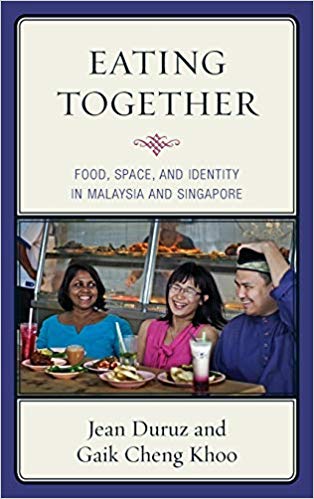

She stated that modern Malaysian cuisine aims to take Malaysian tastes and flavours to a different level.
“For instance, through molecular gastronomy, which is by keeping the flavours but changing the look, food can be turned into something different,” Khoo explained. “Take ice cream as an example. It could be made of glutinous rice and local ingredients that people don’t usually expect to find.”
Sharing her views on the article “Defining ‘Modern Malaysian’ Cuisine: Fusion or Ingredients?” written by herself for the book “Culinary Nationalism in Asia”, Khoo stated the fact that modern fusion cuisine is underappreciated because of the usual high price.
“I’ve interviewed several people before and most responded by saying that they can find much cheaper food,” she explained. “There is much more to fusion than just the price. It’s all about the thinking and labour involved to make the food different. We must not divorce ourselves from that fact.”
Ahmad Najib “Nadge” Ariffin


An architect by qualification but local food historian by choice, Nadge has done cultural research into the origins of food and culinary history. Coining the Malay phrase “Makan dan cinta berpisah tiada” (meaning “food and love are inseparable”), he explained, “It’s applicable at many levels. Our parents cook for the family with love. From there, people who are passionate about food and maybe open up restaurants also cook with love.”
“Sharing his perspective on does food make a nation, Nadge said, “We need to step back and look at more than just the nation. Present-day Malaysia is a modern entity. Food has been around so much longer and their history in Malaysia goes way beyond 1957.
“By acknowledging that fact, a lot of petty arguments about food origins will dissipate. There are so many commonalities of food around Southeast Asia. There’s much more to just talking about the nation if we don’t include history because it is what made us.”
Suresh Subramaniyam
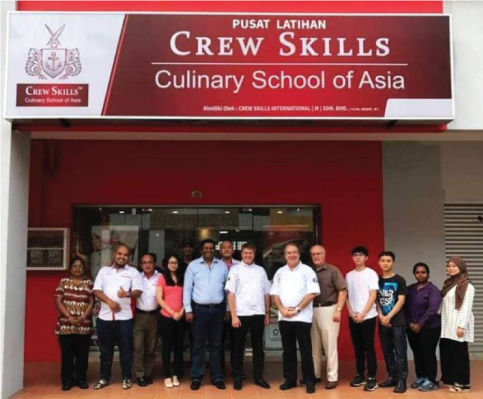

Suresh, the managing director of Crew Skills International, an Ipoh-based professional chef training school with international accreditation and recognition, recalled his experiences starting out in the culinary world.
“It was 1988 when I started my career after SPM. I had to work and support myself in order to get a good education,” Suresh expressed. “The younger generation today is very fortunate to have so many types of scholarship funds to support their education.”
Starting out as a steward for Pan Pacific Hotel, the Penang-born reminisced, “It’s an amazing experience. I enjoyed my work so much. Along the 10 years, I had been with the hotel, I remember sneaking into the kitchen and helping a chef. I was caught by the German head chef five times.”
Speaking on Crew Skills which has been recently appointed by the Japanese government to teach authentic Japanese cuisine in Ipoh, Suresh said, “I will be going to Tokyo later during the month to discuss details with their government.”
“While I’m here, I must say that I’m a big fan of SeeFoon,” Suresh expressed. “What she has done for Ipoh is amazing!”
SeeFoon Chan-Koppen
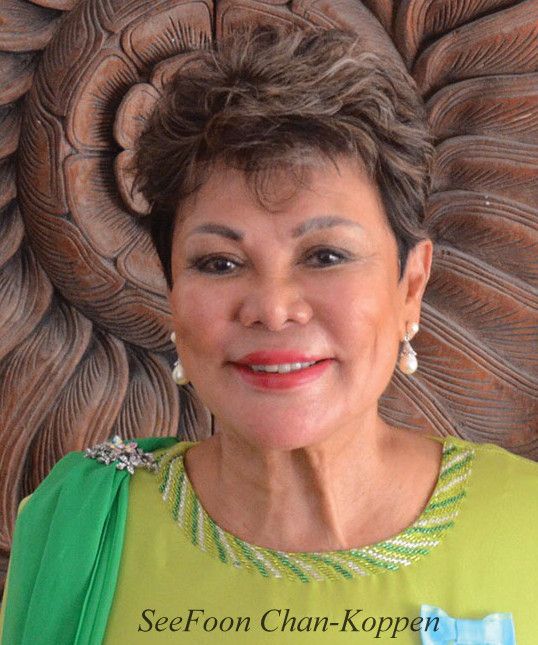

“I was brought up by my grandmother and we had a very limited budget. She went to the market daily and I would learn all about food whenever I followed her,” SeeFoon recalled. “I also got to know how to distinguish quality food. Not that we had the chance to eat fine food then as we were poor as church mice(!) but I learned at my grandmother’s feet.”
“It was a symbiotic relationship with my grandmother. I watched, learned, smelled and tasted her cooking which was how my love for food came about,” she expressed.
Her first job after university was as a journalist and See Foon elaborated, “One of my tasks was to write food reviews. Then I joined the hotel industry in marketing.”
She opined that when one is in the hotel business, one does not just market rooms.
“I had to help in menu layout, proofreading and design, followed by designing food concepts. My 35 years in the hotel industry and being involved in marketing more than 44 hotels taught me all that I know about Western cuisines and gained me a more in-depth knowledge of Asian cuisines. And marketing food and restaurants became a fascinating pursuit,” she enthused.
“I was never afraid to try anything. Put anything in front of me and I will eat it,” said the 74-year-old food critic who cited fried bees as her favourite. “It was important for me to know what other people enjoy.”
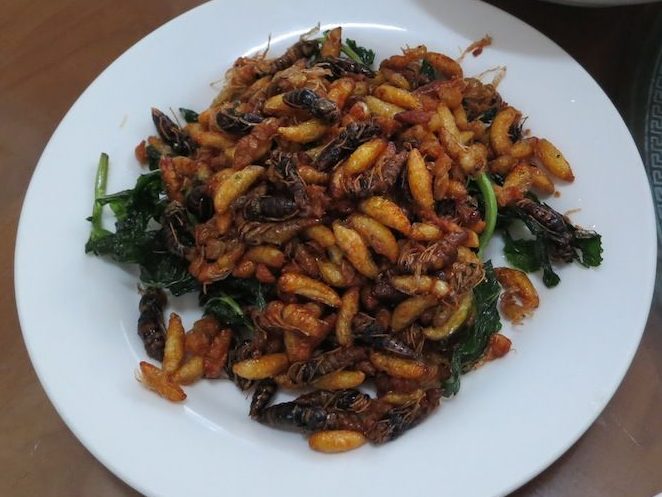

“When I arrived in Ipoh 24 years ago, I could not get enough of the food here. Breakfast, lunch, dinner and tea time in the middle – I gained 10kg during my first year!”
SeeFoon who started her food column “Musings on Food” in the Ipoh Echo, found herself enjoying it very much.
Speaking on her take on modern Malaysian cuisine, SeeFoon explained, “I find the innovative spirit of some chefs incredible. I remember eating a marble-sized pellet served on a spoon and all the flavours of xiaolongbao (a very special Chinese steamed dumpling) burst into my mouth. For me, it was neither fusion nor molecular, but the quintessence of essence!” she enthused.
“We have so many wonderful traditional dishes in Malaysia, each one belonging to its own ethnicity. To be able to reduce food into its essence and make people swoon over that taste, that would be modern Malaysian cuisine!” SeeFoon highlighted.
Kenneth Eng


“I’m not a coffee person to begin with but Jecvis eased me into the process and I learned that coffee is also closely associated with history too,” he said.
“Ipoh White Coffee, as we (Ipohites) know it, are categorised as first wave coffee. Commercialised coffee beans like Starbucks and other popular coffee brands are second wave coffee,” Kenneth explained. “What Jalan Theatre Coffee offers in speciality coffee are third-wave coffee.”
Elaborating further, Kenneth said, “The main purpose of speciality coffee is to let customers know exactly what they are drinking. It’s equally as important to learn the origins of coffee as it is with food. With society becoming more sophisticated and knowing how to enjoy food and beverage, the price is no longer the primary concern.”
According to Kenneth, like examinations, coffee is also evaluated and graded on a 100-point scale. Commercial coffee beans have an average of 40 to 60 points.
“Specialty coffee needs to score at least 80 points. The score itself focuses on the coffee beans used,” he mentioned. “Specialty coffee beans are actually seeds from a fruit, some like cherries, which is why there will be many variants of flavour.”
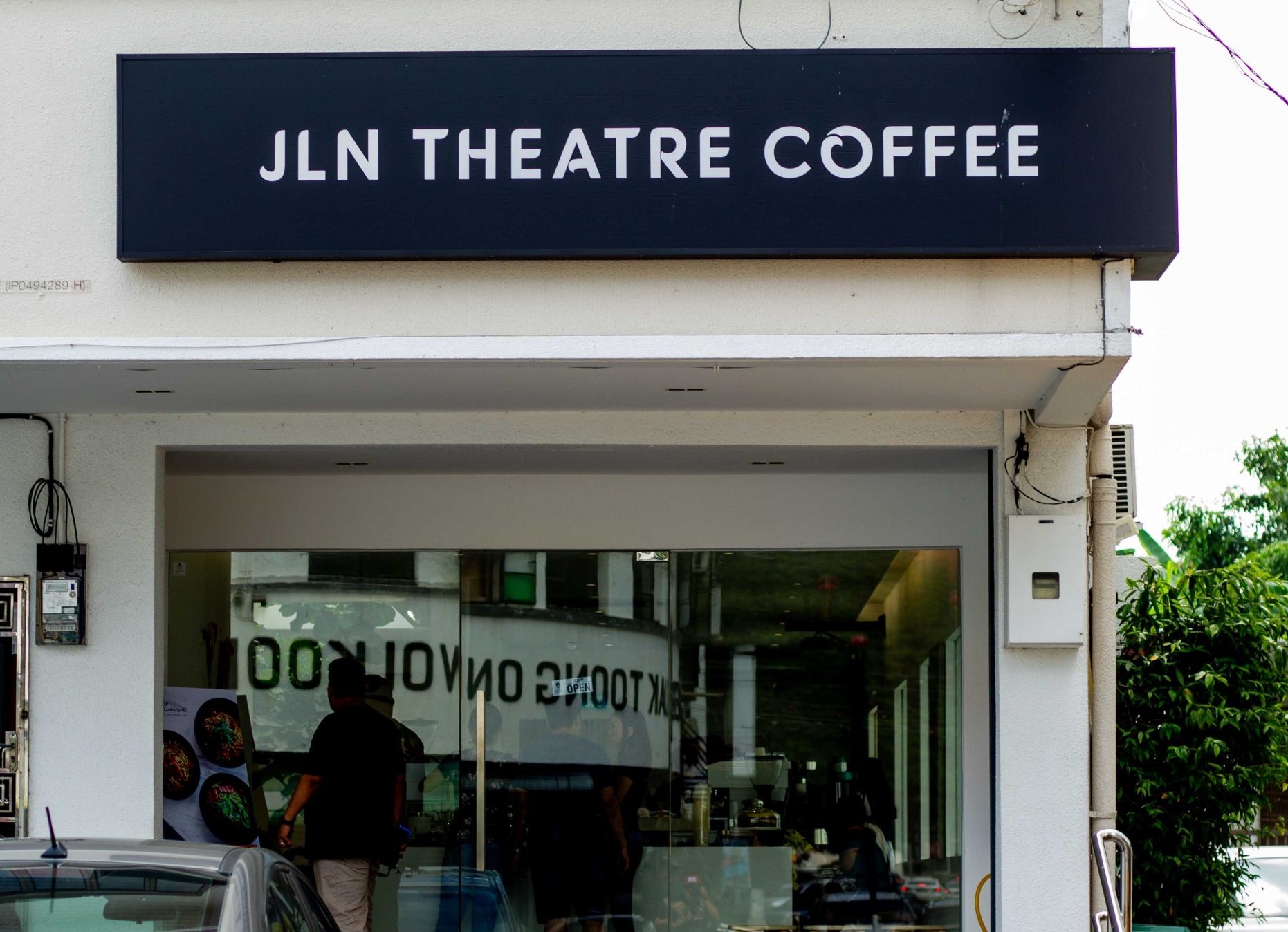

Not without challenges when it comes to opening a business, Kenneth recalled the many times he was told that speciality coffee business will not garner many consumers.
“I’m not an expert of business start-up either but Jecvis has always told me to do my best and to not worry about the market. So I took the chance,” Kenneth expressed. “It’s high time Ipoh be given new ideas and contents in culinary aspects to make the city greater.”
For more information, log on to www.facebook.com/sharpenedword.kinta.


